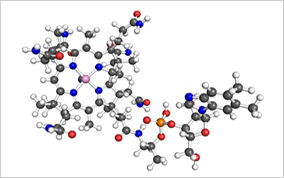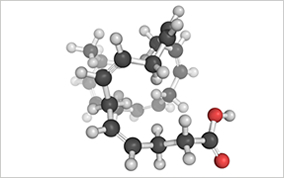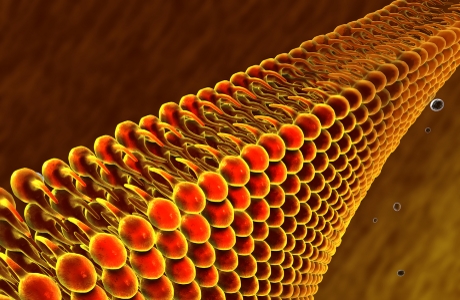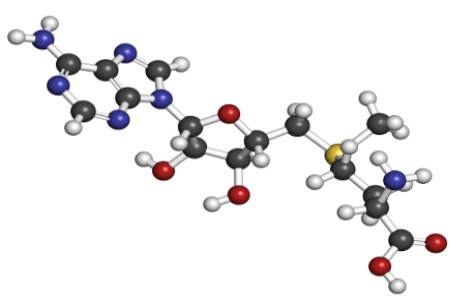I nformation guide

“Let food be your medicine and medicine be your food”
Hippocrates - the father of modern medicine
"Optimum nutrition is the medicine of tomorrow"
Linus Pauling - double Nobel Laureate and most revered chemist of the 20th century
"I would not exist if it wasn’t for chicken’s feet!"
Matt Wright - founder of checkyourfood.com
In 1929 my dad and his identical twin brother were born in a small house in east London, unfortunately a few months later they both contracted severe whooping cough and could not hold any food down. My grandfather was told that there was nothing the doctors could do and that the twins should be left to die. Now my grandfather was a Billingsgate fishmonger and he had a friend in the chicken business and he told granddad to try ‘chickens foot jelly’; this is obtained by boiling chickens feet and letting the resulting liquid cool into a jelly. Guess what, this turned out to be the only food the twins could hold down, it dealt with the bacterial infection and as a consequence they survived and both went on to lead healthy lives.
And of course one of them became my Dad.
As a result, I’ve always been fascinated by food and the way it can potentially transform our lives for the better and I have discovered that a proper understanding of food can make all the difference to our overall quality of life.
It was this that eventually led me to explore the science of nutrition – both the study of micronutrients that all human beings need in small quantities for a variety of physiological functions, and macronutrients such as carbohydrate and protein that we require in larger amounts. I discovered the science behind chickens foot jelly (see the info on essential amino acids in nutrients overview) along with many other amazing things. What I found fascinated me and helped me make major strides in improving my own overall health. In many ways, I wish I’d known what I know now when I was much younger and when I was raising my family.
That’s why I began wondering whether there was a way to make the nutrient content of food, along with the constantly expanding information on nutrition, accessible to everyone, in order to make taking a proactive approach to their health straightforward and achievable…
Then it hit me – with my years of experience developing high end information systems and software, I was perfectly placed to collate and present the nutrient content of food and the information surrounding nutrition in such a way that absolutely anyone could access it and – more importantly – use it to fulfil their health potential.
And so checkyourfood.com was born - a unique website that absolutely anyone can use to check the nutrient content of their food and the science of nutrition. Once you understand the science of nutrition and the nutrients available in what you eat, you can plan your diet accordingly and get the greatest possible health benefits out of every meal.
This guide is an introduction to the site and was written specially to help you make the most of the possibilities it offers. We’ll be looking closely at some of the fundamental principles of nutrition and how checkyourfood.com can help you understand and apply them.
Some of what you are about to read may well challenge your preconceptions about your food, but I guarantee that if you are patient, methodical and refer back to this guide as you explore checkyourfood.com, you are sure to see results… potentially dramatic ones.
It could easily prove the beginning of an exciting new chapter in your life.
“It is now increasingly recognised that nutrition is an important factor in essentially all infectious and chronic diseases in all populations.”
Nevin S. Scrimshaw Ph.D., M.D., M.P.H. President, International Nutrition Foundation
Y our first line of defence should be though food
Often termed 'sub clinical deficiencies' which are deficiencies that show no obvious symptoms early on but lead to chronic conditions later in life.
In response to this the Harvard Medical School has recommended that our first line of defence should be through food and to rearrange our diet to include more sources of the nutrients we are lacking.
Checkyourfood.com allows you to see what is in your food and what it does for you, so you can choose which '5 a day' will most benefit your health now and in the future.
Let food be your medicine and medicine be your food!
W hy not just take supplements?
"I deal with many patients who are led by clever marketing or packaging to spend huge amounts of money on so-called ‘health’ supplements and products for which there is no evidence, and which do nothing at all,” Michael Lean Professor of human nutrition, University of Glasgow.
There have been many news reports recently highlighting the potential dangers of synthetic vitamin supplements and mineral supplements. These warnings are generally in the area of the mega dosing that these supplements give causing adverse reactions in our bodies. It can be argued that we evolved to beneficially use nutrients as they naturally occur in food and not in any other way.
For more information see this article - 'Vitamin supplements can increase risk of cancer and heart disease' & this study - 'Most popular vitamin and mineral supplements provide no health benefit'
Food contains multiple nutrients that work together enhancing the benefits they provide to us in way supplements never can.
For example in leafy greens the vitamin K1, folate, lutein, beta carotene and vitamin C, work together to prevent cognitive decline in a synergistic way that scientists are only just beginning to understand. For more information see this study - 'Food Synergy' & this study - 'Eating green leafy vegetables keeps mental abilities sharp'
Let food be your medicine and medicine be your food!
W hat are nutrients?
Macronutients are protein, carbohydrate, fat and fibre, and micronutrients are vitamins, minerals, phytochemicals, amino acids and fatty acids such as omega 3 and 6 that are present in very small amounts in our food.
Put simply, the vital processes that maintain our life and health are enabled by, enhanced by and protected by nutrients. Although some nutrients are only required in small amounts, it’s impossible to overstate their effect on our bodies.

Although we certainly need macronutrients like protein, fat and carbohydrates, for those to be utilised properly, in the most protective way, they need to be supported by micronutrients. A nutrient deficiency will leave us vulnerable to disease, but a steady supply of nutrients in our food will help keep us in good health by enhancing and enabling our body’s internal processes. In fact the Nutritional Research Foundation has indicated that it is micronutrient deficiencies that are leading many people towards obesity, as this is what is creating the hunger pangs that cause them to continue to indulge in junk food.
Most people who are experiencing this kind of ‘hidden hunger’ don’t even realise that a micronutrient deficiency is the real root of the problem and so never take steps to correct it. In some cases, they even resort to drugs or surgery, which will only provide short-term solutions much of the time. Although such measures may sometimes be necessary, there’s a lot we can do to protect ourselves in your daily life, just by making subtle but effective changes to our diets. Indeed, when nutrition is at its most effective, the results can often seem like magic, as tiny changes can deliver huge results on a molecular and cellular level.
Along with the essential vitamins and minerals most of us are familiar with, a major part of the research into nutrition involves plant chemicals called ‘phytochemicals’. These are the chemicals that plants use to defend themselves against disease. For example, plants protect themselves against bacteria, fungi, viruses and cell damage with phytosterols, carotenoids, flavonoids, isothiocyanates and similar chemicals. Research has shown that these same chemicals can prove equally beneficial to the human body, helping in areas like cancer, heart disease and diabetes prevention. For example, cabbage, onions and berries which are now called ‘super foods’, haven’t earned the title for their vitamin and mineral content, but rather for their phytochemical content.
The science behind nutrition is very complex and can seem quite inaccessible to most newcomers. At checkyourfood.com we have summarised the world’s available science and given links back to the source information which whilst being very technical may be of interest to the more scientifically minded amongst us.
The history of nutritional science began in 1747 with the first clinical trial being carried out by James Lind a Scottish physician showing that citrus fruits cured scurvy.
This then led to the adoption of citrus fruits by the British navy to prevent scurvy. Hundreds of years later, scientists were able to come to the conclusion that it was a ‘Vitamin C’ deficiency that was the cause of scurvy.
Nowadays nutritional clinical trials are more complex as the deficiency symptoms being studied such as heart disease and cancer are built up over many years meaning the studies have to be carried out over long time periods to show results. We have summarised the results of many of these studies along with the research done in laboratories into the effects of nutrients.
As a result, we are very much in the early days of phytochemical research, but the findings in laboratory testing have already yielded great things. Indeed this research and awareness has contributed to the concept of the ‘five a day’. It has been confirmed by various observational and epidemiological studies that people who eat plenty of fruit and vegetables are less prone to problems like cancer, diabetes, Alzheimer’s and heart disease; the next step is to identify which phytochemicals are most effective in this regard.
checkyourfood.com was created to revolutionise the way we look at our food by making the nutrient content of food, and the world’s nutrition information, accessible and useful to everyone. We can then apply this in our day-to-day lives and start experiencing the considerable health benefits it can provide.
The real challenge for newcomers to nutrition is navigating the sheer volume of data that is available nowadays. Fortunately, the team at checkyourfood.com have done all the hard work for you and collated more than 100 years’ worth of research into the benefits of nutrients into one place.

Checkyourfood.com takes into account realistic portion sizes and the effects of various cooking methods to give you accurate amounts of nutrients in both ingredients and meals, something no other site on the internet does.
You can search for a nutrient such as vitamin D and access the science on the effects of vitamin D plus the ingredients and meals that are highest in that nutrient.
You can browse through Ingredients and meals and discover the macronutrient, vitamin, mineral, phytochemical, amino acid and fatty acid content, so you can see exactly what you’re eating and – more importantly – make adjustments where appropriate to optimise your diet.
You can search for any ingredient or meal and access their page with the top 8 nutrients clearly displayed and below these a ‘heat map’ showing the amounts present of all the nutrients in that ingredient or meal.
Along with the effects of various cooking methods the site also takes into account your recommended daily amount (RDA) for different nutrients and how well each meal/ingredient fulfils these. The meal tracker will then keep a record of what you have eaten so you can see how close you are to hitting your RDA’s from month to month, so you can make any necessary adjustments to your diet. RDA’s have been set by the National Academy of Sciences not just to avoid deficiency but to also protect against chronic disease.
For example, an average sized baked potato (250g) after cooking can give an average adult 24% of their RDA for Vitamin B6, 37% of their RDA for thiamin (B1) and 34% of their RDA for vitamin C.
Checkyourfood.com is using data from the latest food composition tables which give the nutrient content of raw ingredients provided by the UK Institute of Food Research and the US Department of Agriculture.
In terms of the science, you can go as deep as you like. If you’re particularly scientifically minded and would like to understand more about the principles of nutrition, the site links back to the appropriate pages on the Linus Pauling Institute website along with other resources.
The purpose of the site is to help you discover what works for you, not force you to adhere to a predetermined diet that may not actually provide you with all the nutrients you specifically need.
The site combines the very latest scientific research with the emerging knowledge from some of the world’s most forward thinking nutritionists.
The data we have used is completely free of commercial interests, so you will always receive a completely impartial, objective analysis of how you can best utilise nutrients to improve your health.
There is no product advertising on the checkyourfood.com website.
Furthermore, a percentage of the profits from the site will be donated to leading institutions in order to fund ongoing research into nutrition.
Anyone!
Put simply, if you are interested in taking control of your health, solving a lingering problem or just keen to eat a healthier diet, checkyourfood.com will help you do it. This is just as applicable to parents who are keen to feed their children as healthy a diet as possible as it is older people who’ve started taking a greater interest in their health and wellbeing.
Even seasoned health professionals can make use of the site in order to offer their patients a useful resource to supplement their regular treatments. If you run a food business you can use the site to let people know the goodness contained in the food that you are providing.

You can experiment to find out what diet best suits you
The science of nutrition is constantly evolving as new data becomes available. As a result, it does not provide ‘one size fits’ all health solutions, as so many diet plans and products purport to do. As we touched on earlier, nutrition is very much in a state of evolution, with the potential of many nutrients still being revealed. This means that if you’re to get the most out of checkyourfood.com, use the information to keep yourself informed about nutrients and take a proactive approach to getting enough of the nutrients you need.
You can choose your ingredients and meals randomly or start with a specific goal in mind (for instance, ‘healthier skin’ or ‘more energy’) and focus your research on it. Monitor the results and if you don’t feel a particular solution is working for you, try something different.
It’s all about engaging with the ‘genius of ordinary food’ by finding out about what nutrients do for us and then aiming at hitting our RDA’s to protect our health. Although it certainly requires a little patience and persistence, the science of nutrition tells us that the long-term benefits are more than worth it.
This is very much a personal decision. Although there is indeed a lot of treated food in our supermarkets nowadays, it’s still quite possible to buy healthy, nutrient-rich, organic and non-organic produce without needing to go to specialist stores.
Don’t feel that incorporating nutrition into your daily life will be particularly difficult or time-consuming. You may actually be surprised at how far a little careful planning can go.
The ‘organic’ label

Regardless of where you shop for your meat, I’d strongly advise you to look for the ‘organic’ label. This provides you with a reasonable degree of certainty that the food in question has not been tainted by pesticides and other chemicals in any way. For example, antibiotics are extremely common in intensive farming methods, and the soil association says that -
“in the last decade entirely new E.coli and Met superbugs have become major problems on European farms due to the overuse of antibiotics. The world's public health experts are agreed that resistant bacteria are created in food animals by antibiotic use and that these resistant bacteria are being transmitted to people. This then makes it more difficult for doctors to treat affected patients”
Organic farmers take the opposite approach, only employing antibiotics if an animal becomes sick, in which case they will wait until the antibiotics have left their system before the animal is sold for meat.
Organic farming is all about preserving the integrity of the soil, and evidence suggests that organic fruit and veg has much higher levels of phytochemicals than sprayed food, as the plants are forced to defend themselves rather than becoming dependent on pesticides. Although this does mean the end product will cost a little more, organic farming helps protect the soil, the plants and the animals and ensures you can enjoy unpolluted food as much as possible.
Although you’ll still get nutrients from intensively farmed food, you may also be getting other less healthy additives.
The continuing development of nutritional science means that it’s important that you stay abreast of new discoveries and developments, so you can always plan your meals according to the most up-to-date information. To ensure we are always offering the most accurate, up-to-date information, all the information on checkyourfood.com & checkyournutrition.com is provided within the framework of the 'NHS England Information Standard'.
We receive regular updates from the leading research organisations on nutrition, not to mention our existing users, who can report back to us on what is and isn't working for them.
In many ways, nutrition represents a never ending journey, but the potential rewards are great…

Conclusion
I hope everything you’ve read in this information guide has proven interesting and enlightening and perhaps caused you to rethink your attitude to food, health and wellbeing. Now, the next step is to start putting everything you've learned into practice and find out whether you’re getting all the nutrients you need to operate at peak efficiency.
Whatever your long-term goals, I sincerely hope that your journey into the world of nutrition is a fruitful one.
Matt Wright
Founder of checkyourfood.com

 About nutrients
About nutrients
 All nutrients
All nutrients
 vitamins
vitamins
 minerals
minerals
 phytochemicals
phytochemicals
 fatty acids
fatty acids
 macronutrients
macronutrients
 amino acids
amino acids



